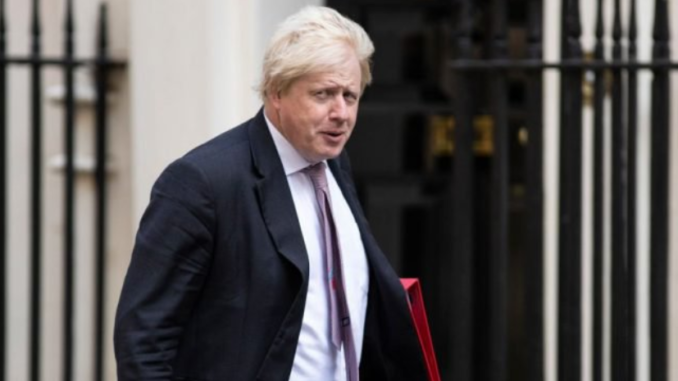
On 24 July 2019, Boris Johnson; 55 years old member of Parliament became the Prime Minister of the United Kingdom and Leader of the Conservative Party following weeks of intensive leadership succession which ensued on 24 May, 2019 at the heels of Teresa May’s announcement of decison to resign in the heat of fastidious Brexit negotiation. The immediate past Prime Minister had failed to deliver on her promise to secure an EU deal suitable enough to meet the expectations of contending interests within a country that had become intensely divided on the path to forging a common future.
The new Prime Minister, no doubt, mounted the saddle of leadership on account of his avowed conviction on delivering on the much-debated Brexit. PM Johnson was one of the dominant voices in the debates leading to the referendum which delivered a narrow 51.9% affirmation in support for Brexit; thus setting the stage for a two-year negotiation process which was initially expected to deliver on Brexit following activation of Article 50 of the EU Treaty.
The road to the new future ahead of the United Kingdom would appeared to have assumed a definitive momentum with the leadership of PM Johnson whose populist clout majority of Brexit enthusiasts expect would be fully deployed in fast-tracking the process leading to the final and ultimate disengagement from EU; drawing the curtains on a divorce that has created much anticipation within and outside the United Kingdom. It is obvious nothing short of delivering on the agenda of Brexit within the new timeline of October 31 would be considered as a fitting performance for the new Prime Minister considering the tense politics already elicited.
PM Johnson is confronted with the nightmares of premature exits of David Cameron and Teresa May who were forced out of office on account of uncertainties that have dominated Brexit narratives since 2016. There is no doubt the new PM appreciates the mood of the nation having featured as a key player in series of campaigns which culminated in the referendum that birthed Brexit negotiation.
Nevertheless, the challenge for PM Johnson largely remains that of striking a balance between popular expectation for a “smart Brexit deal” and the likely option of “an exit without a deal” that has become inevitable; and more readily so on account of the depth with which the new PM’s open demonstration of faith in the new deadline for Brexit has resonated with clear definitive tone.
At the frontline of engaging weeks ahead for the leadership of PM Johnson is the quest for overcoming obstacles posed by contending perspectives that have made Brexit subject of divisions in UK politics. Indeed, there are no assurances the palpable rancour triggered by Brexit would take the backstage as PM Johnson pushes ahead with expectations of a deal for firmer and reassuring exit from the EU.
A daunting challenge for the PM remains how UK will take control of its sensitive borders with other EU member states upon Brexit and at the same time maintains open border with Ireland; a member of EU. Resolving this dilemma amongst other contentious concerns is expected to form part of the consideration for a deal; if however possible ahead of October 31, 2019.
It is commendable that the new Prime Minister upon assuming office has embarked on fence mending; consensus building efforts which are however turning out pretty ardours and exigent; even if unarguably imperative. It is just as important that the new Prime Minister in the course of the week embarked on a crucial tour of the federating units of sovereign United Kingdom; notably in Northern Ireland, Scotland and Wales.
It should be conceded that the imperative of breaking prevailing political deadlock in Northern Ireland has become more compelling than ever as the reality of October 31 deadline approaches. While Northern Ireland voted narrowly against Brexit in the Referendum conducted on 23, June 2016, the political leadership has since remained largely stoic on the raging political deadlock thus making divisions on the path to the future ahead of Brexit difficult to fashion on the basis of unity needed to foster engagement with other stakeholders within the United Kingdom.
The new PM is expected to forge a convincing negotiation to deliver a concrete deal with EU in spite of his professed commitment to exit from EU anchored on a posture of ‘Deal’ or ‘No-Deal’. Whatever the case, PM Johnson faces fierce test of assuaging stakeholders within the United Kingdom whose concerns over the impending future outside regime of EU could not be disregarded or dismissed.
Notwithstanding that PM Johnson sounds decisive and committed to exit the EU within the next three months, renewed clamour for a deal popularly considered as acceptable which became Achilles Heel of his predecessor still portends serious challenges ahead. This is precisely on account of lingering concerns over what the future possible holds for post-EU Housing, Agriculture, Borders and Trade amongst other issues bordering on immigration as it affects EU member countries and other regions of the world. More compelling however are the growing apprehension and fears over possible breakup of the United Kingdom in the event that Brexit turns out without concrete resolution of the contentious issues.
END

Be the first to comment